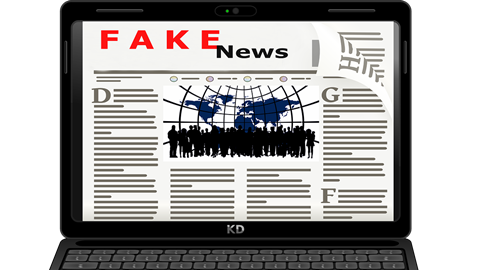The Internet has gradually become crucial in our everyday lives as we use it for work, leisure, communicating with loved ones and getting all the information we need.
Therefore, the proliferation of fake news and misinformation online becomes an increasingly important issue, since it is not always easy for users to distinguish between factual, trustworthy information and pseudo-scientific or manipulated content online promoting conspiracy theories, recommending a miracle cure or even advocating worthy causes, such as climate change.
In a period as critical as the coronavirus pandemic we are in, these concerns become more important, since most people are staying at home and the Internet becomes a dominant source for accessing news and discussing topical issues. At the same time, this is a period of grave anxiety for many from a financial and health standpoint, and consequently, fear, distress and desperation can lead many users to follow advice and believe and share claims that can become harmful for themselves and others. Relying on misinformation is dangerous at any time, but the dangers are higher during widespread crises such as the current one.
The global spread of social media platforms has exacerbated these concerns, since users can create and share content on multiple platforms very quickly, whereas fact checking and establishing the truth takes time and effort that can be disproportionately higher.
Moreover, fake news and relevant misinformation posts can often be circulated in private groups among individuals that have a specific interest in believing the claims are truthful, as they might match their ideas or hopes. This becomes more obvious, for example, when talking about social media or forums of individuals that face serious health conditions making them even more vulnerable to COVID-19. In such cases, the fear and need for hope can lead individuals to try radical or unsubstantiated health advice and purchase medication that is untested or harmful.
This is not to say that misinformation cannot influence otherwise healthy individuals with a genuine fear for the virus. There have been multiple deaths of individuals consuming large amounts of alcohol as a cure/preventative measure for COVID-19. Especially in Iran, local social media users promoted a story published in UK tabloids about an English schoolteacher and others curing themselves of COVID-19 by drinking whisky with honey, which led to hundreds of deaths from dangerous methanol consumption.
The above situation becomes even more challenging when politicians and other public figures seem to be encouraging experimentation, following unsubstantiated advice or recommending miracle solutions during the pandemic.
US President Trump has been an example of the above, particularly when he enquired as to the possibility of intravenously injecting disinfectant in order to cure COVID-19 during a press conference. Such was the outcry regarding this comment that disinfectant producers actually issued a statement warning the public against trying this. Alternatively, the governor of Kenya’s capital, Nairobi, justified the inclusion of Henessy Cognac in food supplies to the vulnerable people in the city, by saying that the World Health Organisation (WHO) has highlighted the beneficial nature of alcohol in killing the virus, essentially distorting WHO advice.
Governments and social media companies are making efforts to deal with the tide of misinformation through generating relevant laws and regulations or technology filters and artificial intelligence mechanisms for spotting fake news. However, these systems can be far from perfect and require regular reviewing in order to be effective without restricting free expression online.
How can we then protect ourselves from dis/misinformation around COVID-19 developments and how can we help prevent the spread of misleading information, which could prove harmful to others?
The first step is to focus on the source and its reliability. However, in many cases misinforming websites will claim mainstream media are hiding the story that they are bravely sharing. This, of course, gives them more credibility and challenges this first step of verifying the legitimacy of the source by challenging the motives of mainstream media.
If unsure about the source of the information, major news outlets such as the BBC provide their own reality check/fact check webpages in relation to COVID-19. In any case, if a claim seems to be realistic or coming from a source we consider generally responsible, it is always important to check whether another reputable source has written about the same issue online.
There are also organisations that provide fact checking advice and toolkits in order to assist users in spotting and debunking misinformation and even tools for reverse searching photos to ensure the photos accompanying a news item are legitimate and not used out of context to support a false claim.
Finally, one important piece of advice to remember is to avoid sharing information online, if the legitimacy and truthfulness of the information is contested. We cannot police everything written and shared online, although we can report fake stories and social media accounts, but we ought to be sceptical and critical about what we read or watch and be certain of what we share.
In the same way that we are responsible for staying inside in order to avoid spreading the disease, we should be responsible and avoid sharing unverified misinformation and conspiracy theories that could prove harmful as well, especially in the current climate.
By Dr. Vasileios Karagiannopoulos, Reader in Cybercrime and Cybersecurity and Cybercrime Awareness Clinic Director, Institute of Criminal Justice Studies, University of Portsmouth and Ms Holly Foxcroft: Cybercrime Awareness Clinic student intern






















No comments yet